Why MetaKraftwerk?
The original data location and structure rarely fit the needs of an efficient advanced analytics. Data integration and data engineering transform the data into better suited platforms like data lakes and data warehouses.
Metadata-driven Development
Problem with Manual Development
This results in solving similar problems multiple times and standards are never quite followed. Repetitive work increases the error rate. Making additional management and communication efforts necessary.
In essence, data integration is a big cost driver and projects take months or even years to complete, often with high burn rates.
Over time emerges that problems are similar. Pattern become apparent. For many groups of problems the usage of a standardized and automated development approach is favored.
This results in solving similar problems multiple times and standards are never quite followed. Repetitive work increases the error rate. Making additional management and communication efforts necessary.
Over time emerges that problems are similar. Pattern become apparent. For many groups of problems the usage of a standardized and automated development approach is favored.
Automated Development with MetaKraftwerk
Instance metadata define the individual data integration process properties like data fields and data types. During its build process using the design pattern and instance metadata, MetaKraftwerk computes the fully executable data integration processes in seconds. Development work that took before month or years is now available after seconds! The most efficient data integration development method!
Effort Analysis of Development Approaches
Effort Analysis of Development Approaches
A common development approach in data integration projects is the use of templates. These semi-technical specifications define the general design of the data integration processes. The functionality itself is only implemented and tested in the actual processes. The effort reduction concerning the implementation and test, but even the design is limited.
Applying the explained pattern-based approach with manual instantiation allows effort reductions by designing, implementing and testing the functionality in the pattern. The functionality itself doesn’t need to be addressed within each single instance.
Nevertheless, manual effort is still necessary to adjust the processes to handle the dedicated data structure and data fields. Pattern with non-trivial functionality and respectively high complexity need to be implemented with great accuracy to minimize test efforts.
The manual development efforts for the instantiation are eliminated with the pattern-based automated development. The instances are created based on metadata and the automatic application of rules. Divergences from the pattern are eliminated. Therefore, test effort is minimal and only addresses the actual impact of the instance metadata. The effort for the pattern creation fully pays back and an outstanding cost function is realized.
Economies of Scale
Economies of Scale
Benefits of MetaKraftwerk
Tremendous
Cost Savings
Tremendous Cost Savings
Fastest
Time-To-Market
Fastest Time-To-Market
Agile
Development
Agile Development
Power of
Standardization
Power of Standardization
Excellent
Quality
Excellent Quality

Full
Functionality
Full Functionality
Do you have further questions?
